Be the first to know!
Join our list to be notified of new buildings and other discounts.
(*You can unsubscribe at any time.)
Join our list to be notified of new buildings and other discounts.
(*You can unsubscribe at any time.)
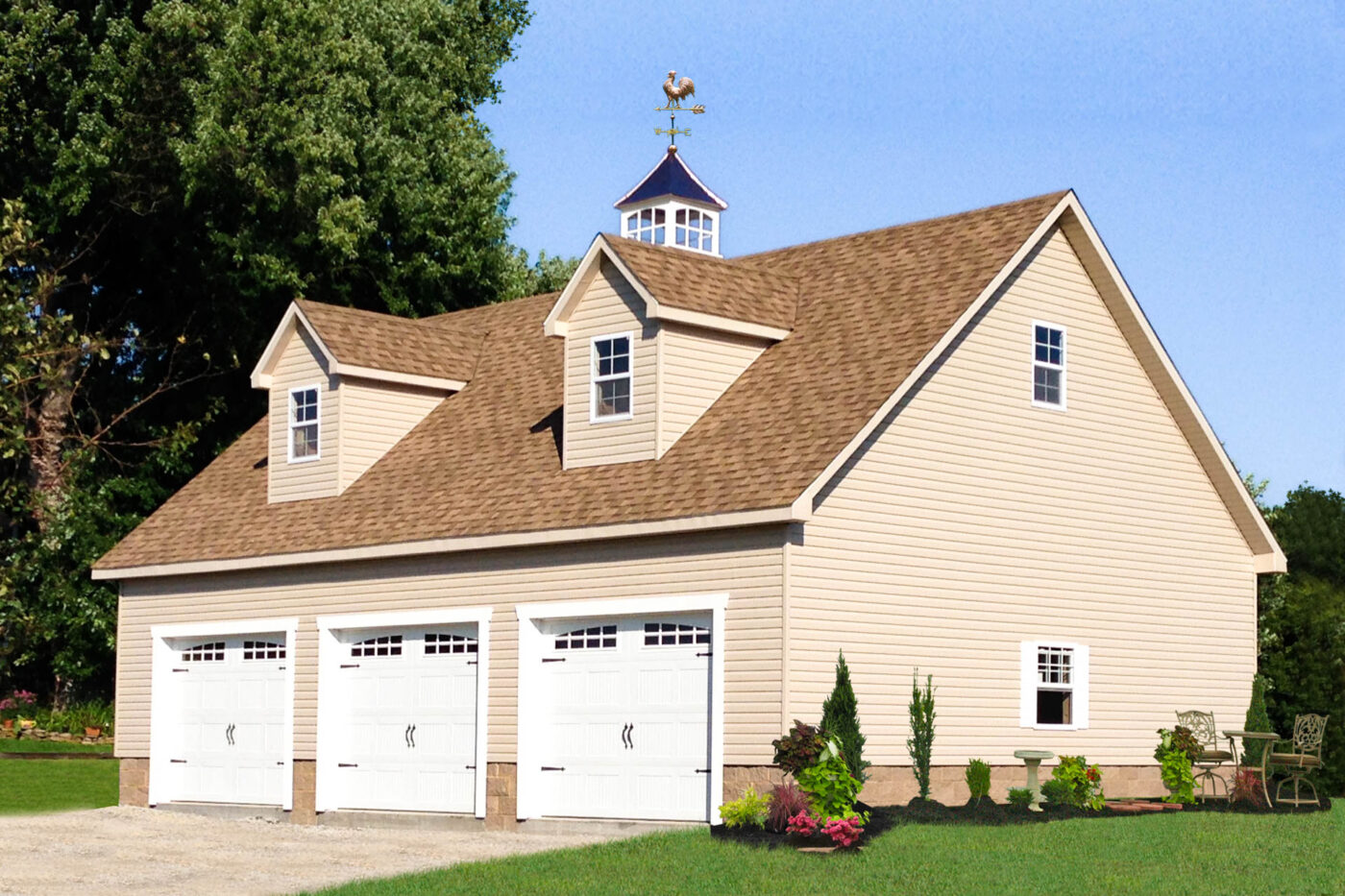
Building a garage or shed in New Hampshire involves following local building codes and regulations, which can differ greatly from one municipality to another. It’s essential to understand the specific requirements in your area to ensure compliance and avoid potential delays or fines. This guide provides detailed information on garage permits in New Hampshire, covering the types of permits needed, when they are required, and the steps involved in the application process. Additionally, it addresses common questions about zoning laws, inspections, and other key factors to help you navigate the permit process smoothly.
In the meantime, if you’d like to explore the garage models we offer or design your own with our 3D Builder, feel free to visit our Garage Page or 3D Building Page.
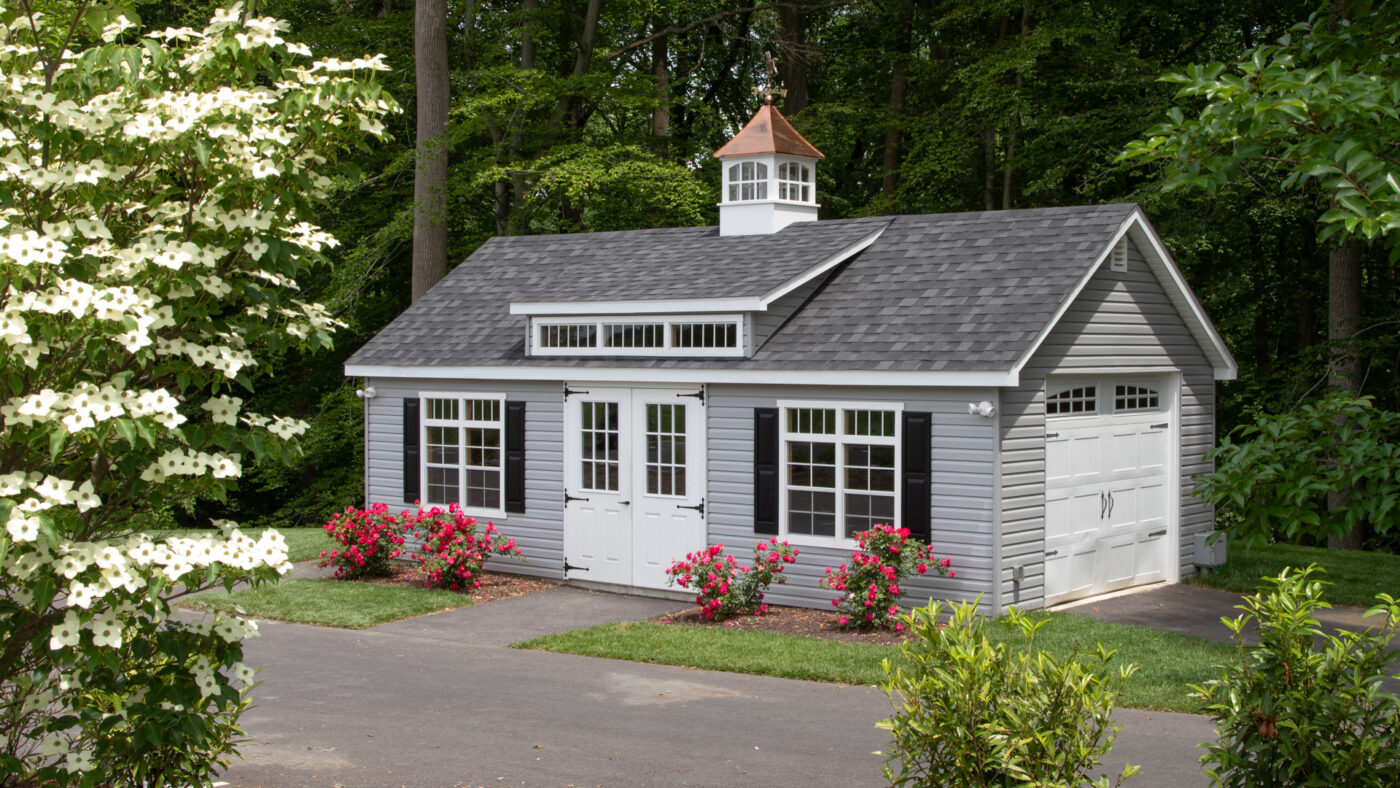
Yes, constructing a garage in New Hampshire generally requires a building permit, as garages are considered significant structural additions.
Local municipalities may have additional rules or variations. For example, the City of Berlin requires permits for all additions and alterations to primary structures, including garages, ensuring they meet setback, height, and use regulations. In the Town of Litchfield, permits are also required for accessory buildings such as garages, and the town may impose requirements related to lot coverage, proximity to property lines, and foundation types.
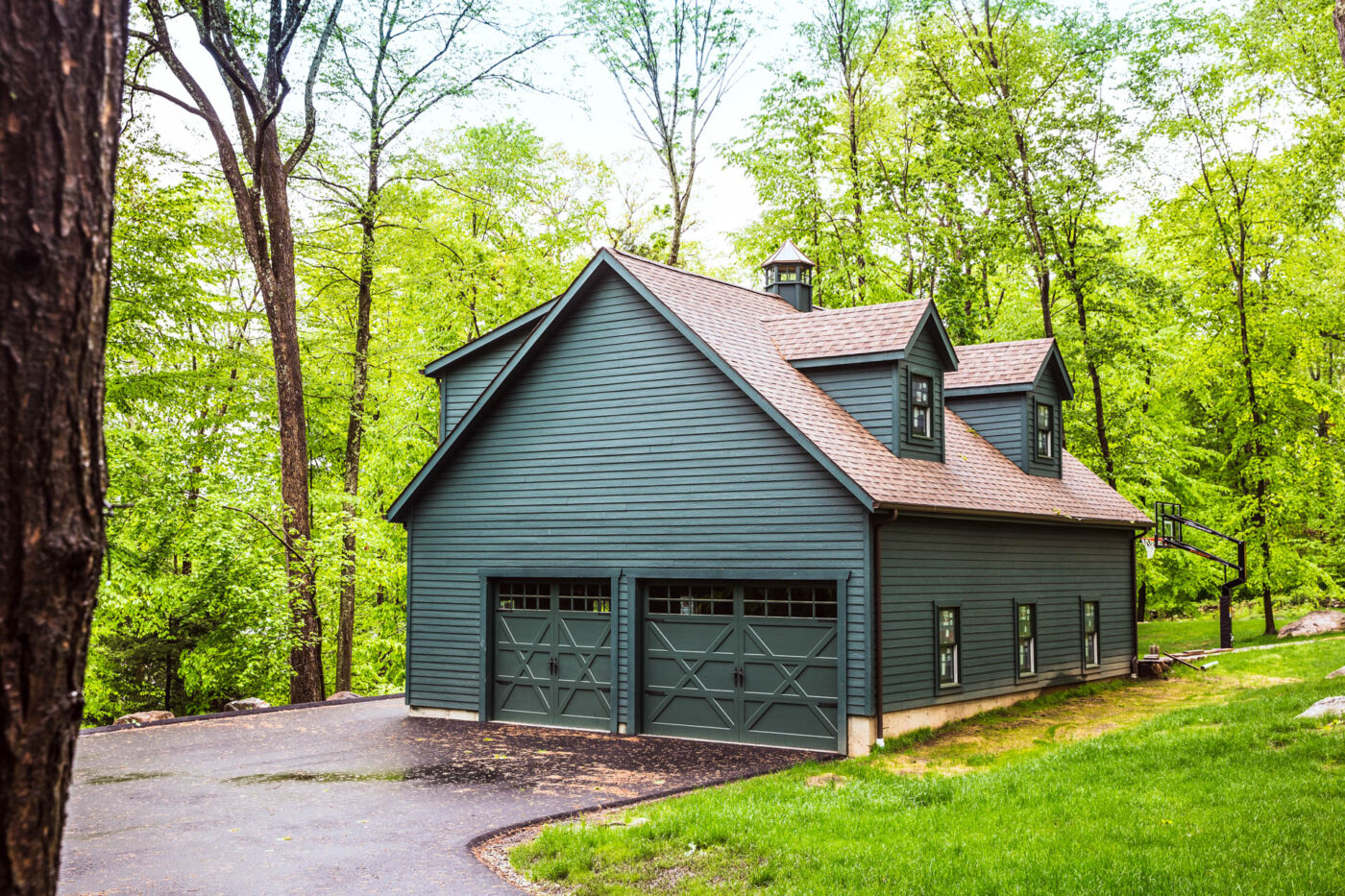
In New Hampshire, the 2018 International Residential Code (IRC)—which the state has adopted—allows one-story detached accessory structures like garages to be built without a permit if they are 200 square feet or less.
However, local municipalities may enforce stricter limits. For example, in Merrimack, garages up to 160 square feet are permit-free, while Barrington aligns with the IRC’s 200-square-foot threshold. In contrast, Litchfield requires permits for any garage larger than 100 square feet. Because these regulations vary by town, you must check with your local authorities before starting your garage project.
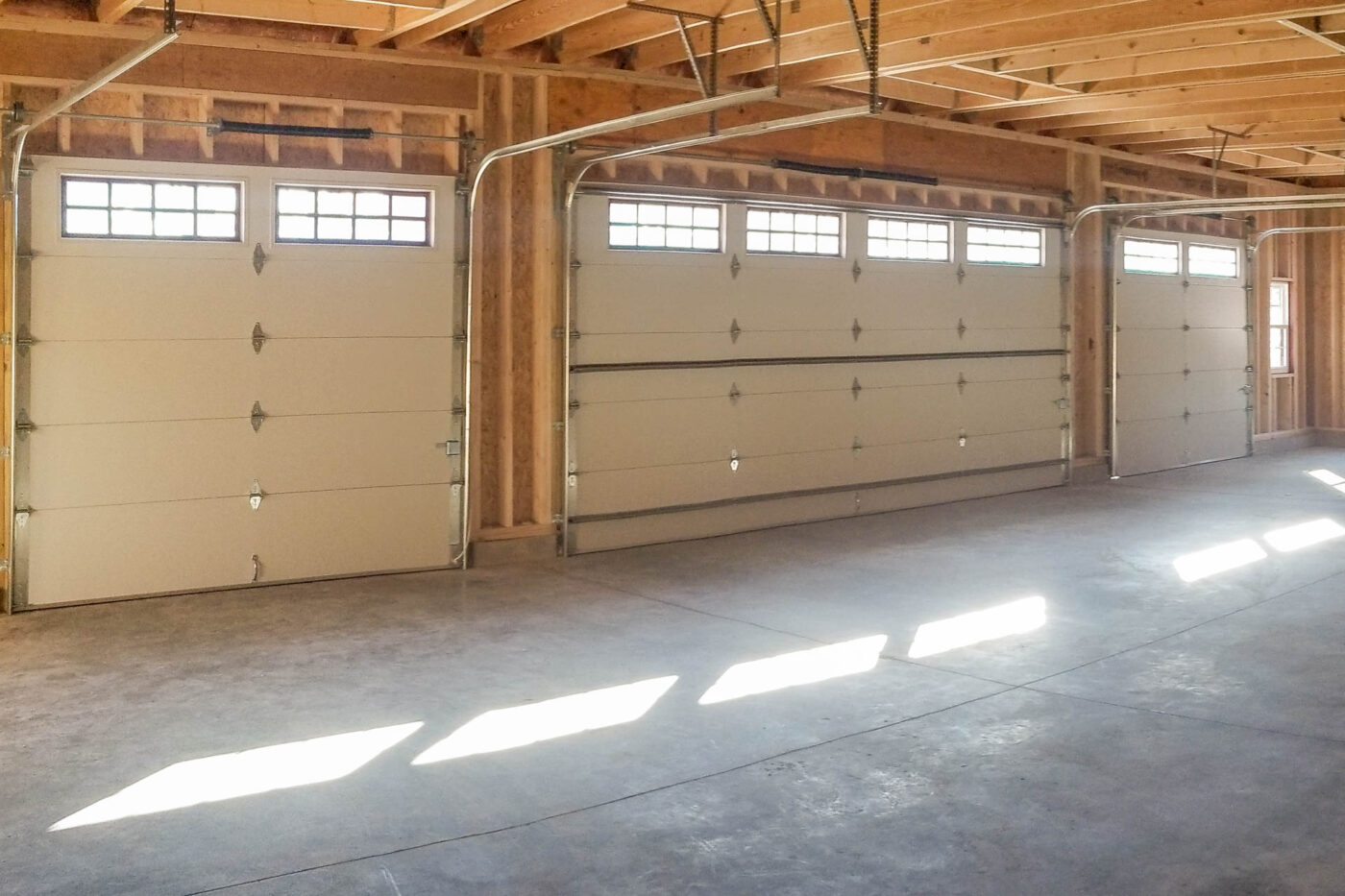
Yes, in New Hampshire, running electricity to a garage requires an electrical permit and must comply with local and state electrical codes.
In Derry, for example, a separate electrical permit is necessary, and only a licensed NH master electrician may apply. However, homeowners can perform the work themselves by completing a Homeowner Affidavit and providing an electrical diagram for approval. Always ensure compliance with the National Electric Code and local regulations.

Before building or placing a garage on your property in New Hampshire, it’s important to understand the local permit requirements—which can differ widely depending on the county, town, or city. While some areas may allow small garages without a permit, others have specific zoning regulations, size limits, or setback rules that must be followed. Below are a few examples of how these requirements can vary across different New Hampshire counties and municipalities.
For example:
Hampton: Garage sheds no greater than 100 square feet and not exceeding 12 feet in height must maintain a minimum setback of four feet from side and rear property lines.
Lebanon: Garage sheds up to 400 square feet require a zoning permit; larger garages need a building permit.
Rochester: Garage sheds 200 square feet or less can apply for an Express Building Permit, while larger garages follow regular setback requirements.
| Counties | Websites |
|---|---|
| Hillsborough County | Department of Building Permits |
| Merrimack County | Department of Building Permits |
| Coös County | Department of Building Permits |
| Rockingham County | Department of Building Permits |
| Grafton County | Department of Building Permits |
| Belknap County | Department of Building Permits |
| Cheshire County | Department of Building Permits |
| Strafford County | Department of Building Permits |
| Sullivan County | Department of Building Permits |
| Carroll County | Department of Building Permits |
Yes, if you’re planning to build a garage in Hillsborough County, New Hampshire, you will likely need a building permit.
However, it’s important to note that permits are issued at the town or city level, not by the county itself. Each municipality within Hillsborough County has its own building codes and permitting processes.
If you’re planning to build a garage in Merrimack County, New Hampshire, you’ll likely need a building permit.
Keep in mind that permits are handled by individual towns and cities, not the county. Since each municipality has its own rules and process, it’s best to contact your local town or city office for the exact requirements.
In Coös County, a building permit is generally required for new structures like garages—particularly if they exceed a certain size or include electrical, plumbing, or mechanical systems. However, exact requirements may vary by town or city, as each municipality typically follows its own zoning ordinances and permitting procedures.
In Rockingham County, New Hampshire, you will probably need a building permit to build a garage. However, the requirements vary depending on whether your property is in an incorporated municipality (such as Derry or Exeter) or an unincorporated area of the county.
Yes, constructing a garage in Grafton County, New Hampshire, typically requires a building permit.
The specific requirements and procedures can vary depending on the municipality where your property is located.
In Belknap County, New Hampshire, obtaining a building permit is typically required before constructing a garage, whether attached or detached.
Because each town in Belknap County may have unique zoning rules and documentation requirements, it’s essential to contact your local code enforcement or planning department before beginning construction.
Yes, in most cases, you will need a building permit to construct a garage in Cheshire County, New Hampshire. However, permit requirements are set and enforced at the local town or city level, so the exact rules may vary depending on your location within the county.
Yes, in most cases, a building permit is required to construct a garage in Strafford County, NH.
However, permit requirements are not handled at the county level—they are determined by the specific town or city where the property is located. Each municipality may have its own rules regarding size thresholds, setbacks, zoning regulations, and inspection procedures.
Yes, a building permit is generally required to construct a garage in Sullivan County, NH, whether it’s attached, detached, or prefabricated.
However, permit requirements—including application procedures, zoning setbacks, and inspection schedules—are set by individual towns and cities within the county. This means you’ll need to consult your local building department or code enforcement office to confirm what’s needed for your specific project, including any additional permits for electrical, plumbing, or heating systems that may be included in your garage plans.
If you’re planning to build a garage in Carroll County, NH, you’ll most likely need a building permit. The specific requirements can vary depending on the town or city where your property is located, as each municipality has its own set of rules and regulations.

In New Hampshire, constructing a garage typically requires a permit, but the specific requirements can vary widely between cities and towns.
While the New Hampshire State Building Code offers general guidelines, local regulations may include additional restrictions or requirements. Below are the top 10 cities in New Hampshire, along with helpful links to their building department websites, where you can find detailed information about permit requirements for building projects, including garages.
| Cities | Websites |
|---|---|
| Manchester | Department of Building Permits |
| Nashua | Department of Building Permits |
| Concord | Department of Building Permits |
| Derry | Department of Building Permits |
| Rochester | Department of Building Permits |
| Dover | Department of Building Permits |
| Salem | Department of Building Permits |
| Merrimack | Department of Building Permits |
| Londonderry | Department of Building Permits |
| Hudson | Department of Building Permits |
In Manchester, NH, a building permit is required for constructing a new garage, and all applications must be printed and submitted in person or by mail to the Planning & Community Development Department.
The garage must comply with local zoning rules, including setbacks, lot coverage limits, and height restrictions. If your plans don’t meet these requirements, a zoning variance may be necessary. Additional permits are required for electrical, plumbing, or heating work. If the garage includes an accessory dwelling unit (ADU), it must follow specific guidelines such as a 900 sq ft size limit, matching the home’s design, and owner occupancy.
Building permits for Manchester, NH, can be obtained through the Concord Building Department. To learn more, give them a call at 603-624-6450.
To build a garage in Nashua, NH, you must get a building permit from the Department of Building Safety by submitting a Building & Land Use Permit Application and a plot plan.
Your garage must follow zoning rules, including setbacks, lot coverage, and height limits. Permit fees are based on square footage. Additional permits are needed for any electrical, plumbing, or HVAC work. If you’re adding an accessory dwelling unit (ADU) to the garage, it must be under 750 sq ft, match the main home’s style, and share an interior connection. Owner occupancy and filing a covenant are also required.
To get a garage permit in Nashua, NH, contact the Nashua Building Department. For more information, give them a call at 603-589-3080.
In Concord, NH, you need a building permit to construct a garage, whether it’s attached or detached.
To apply, submit a Building Permit Application, plot plan, and construction drawings. The garage must meet zoning requirements like setbacks, lot coverage, and placement, typically in the side or rear yard. If your design doesn’t comply, you may need approval from the Zoning Board. Additional permits are required for electrical, plumbing, or mechanical work. If you’re adding an accessory dwelling unit (ADU), it must meet size, design, and occupancy regulations.
For help, contact the Code Administration Division at 603-225-8610.
If you’re planning to build a garage in Derry, NH—whether it’s attached or detached—you must obtain a building permit from the town’s Code Enforcement and Building Department.
Permit applications can be submitted online through the Town of Derry’s permitting portal. Once your application is reviewed and approved, you’ll receive an email notification. You can pay the required fees online using a credit card or in person with cash (exact change) or a check.
For details on obtaining a garage permit in Derry, NH, reach out to the Concord Building Department. They can provide all the information you need. (603) 432-6751
In Rochester, NH, constructing a garage requires obtaining a building permit.
For residential properties, a Minor Building Permit is typically required, while commercial or multi-unit residential properties need a Major Building Permit. The application process includes submitting two sets of building plans, a site plan, and possibly a driveway or stormwater management permit, depending on the project. A foundation certification plan may also be required.
To begin the process, contact Building and Licensing Services at (603) 332-3508.
In Dover, New Hampshire, constructing a garage—whether attached or detached—requires obtaining a building permit. This applies to any new construction, addition, or significant alteration to a structure, including garages.
You’ll need to provide construction plans, a site plan, and structural details. Garages over 240 sq ft require frost-protected footings, and zoning rules like setbacks must be followed. Inspections are required during construction.
Garage permits in Dover, NH, can be obtained through the Building Permit Department. For more information, call (603) 516-6038.
To build a garage in Salem, NH, you must first complete a building permit application, available on the town’s website or at Town Hall.
Start by completing the building permit application, which requires detailed information such as property address, contractor details, estimated cost, square footage, and site plans showing setbacks and zoning compliance. Residential garages must also receive approvals from the Engineering and Health departments. Applications can be submitted in person at Salem Town Hall during permitting hours (Monday–Friday, 8:30–9:30 AM). If no fee is required, you may submit it by email.
Planning to build a garage in Salem, NH? Reach out to the Building Department at 603-890-2036 to get your permit started.
Yes, you need a building permit to construct a garage in Merrimack, NH, whether it’s attached or detached.
The permit process involves submitting an application with construction plans to the town’s Building Division, undergoing plan reviews, and completing required inspections. Fees include a $25 application fee and $0.12 per square foot for the permit. If you’re adding electrical work, a separate permit is required. It’s also important to ensure the project complies with local zoning regulations, including setback and property line requirements.
Garage permits in Merrimack, NH, are available through the town’s Building Division. For more information, call (603) 420-1730
In Londonderry, NH, a building permit is required for any new garage construction—whether attached or detached—to ensure compliance with local building codes and regulations.
Permits must be applied for using paper forms, including a Residential Building Permit Application and an Energy Compliance Form, submitted to the Town’s Building Department. The application fee is $25, and the permit fee is $6 per $1,000 of the estimated construction cost. Forms and requirements can be found on the town’s website, and all documents must be delivered in person to 268B Mammoth Road.
To obtain a garage permit in Londonderry, NH, contact the Building Permits Department at 603-432-1100 for more details.
Yes, if you plan to build or modify a garage in Hudson, New Hampshire, you will likely need a building permit. The Town of Hudson requires permits for most construction projects, including garages, whether attached or detached.
The Inspectional Services Division oversees the permitting process. Permit applications can be submitted electronically or via mail. You can email electronic submissions to Inspectionalservices@hudsonnh.gov. Ensure you include the property address in the “title” line when uploading files.
Planning a garage project in Hudson, NH? Just give the Building Permits Department a call at (603) 886-6005—they’ll walk you through the permit process.

In New Hampshire, you’ll usually need to get a garage permit through your town’s building department or code enforcement office.
For example, if you’re in Kensington, you can go through the Building Department at kensingtonnh.gov. In Derry, it’s even easier—you can apply online through the Code Enforcement Building Department’s portal.
Each town may have its own process, so it’s always a good idea to check with your local town or city hall for the exact steps.
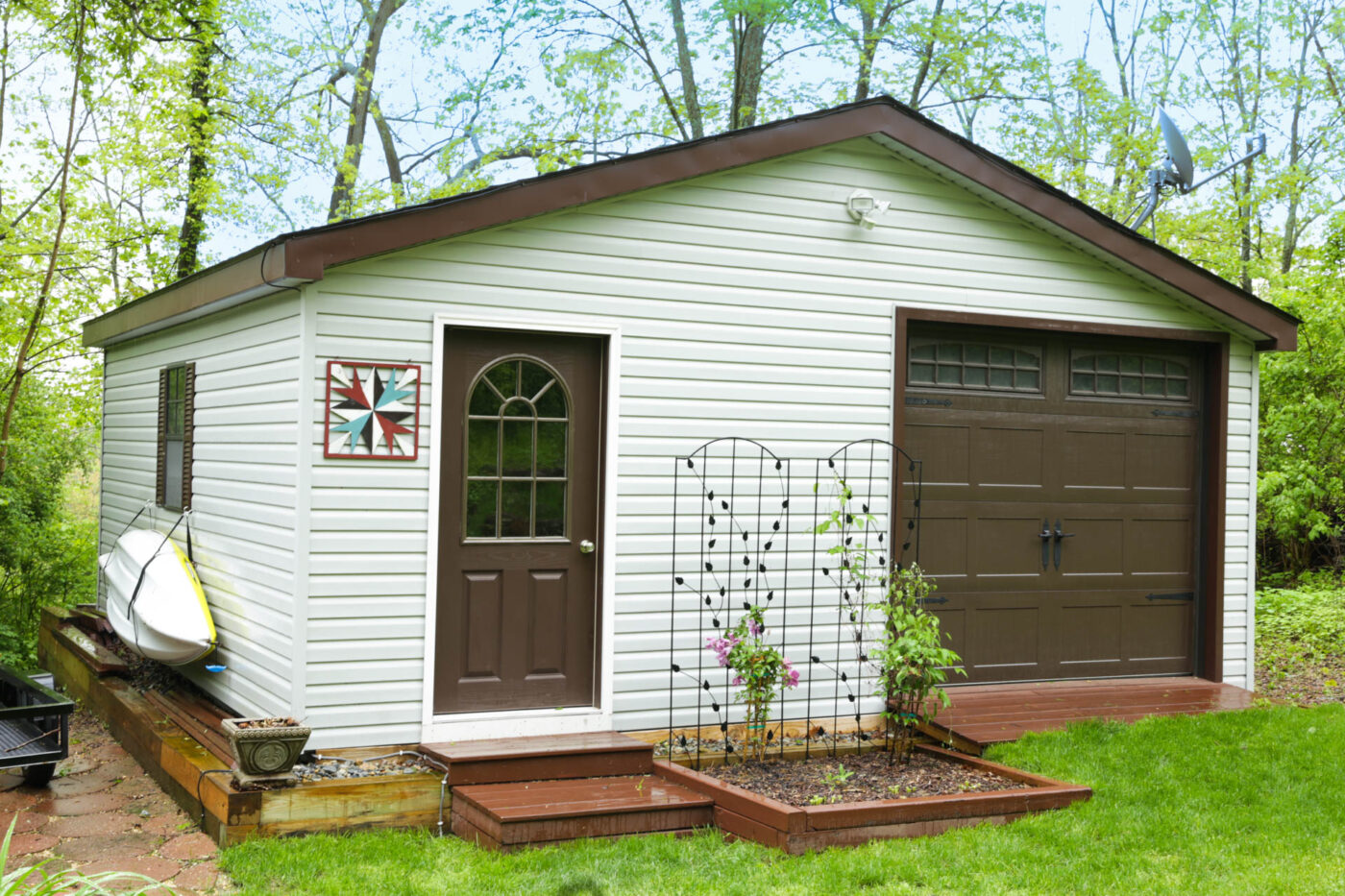
Garage permit fees in New Hampshire vary by municipality, often based on factors like square footage or estimated construction cost.
Here are some examples from different towns:
It’s important to note that these fees can change and may not include additional costs for electrical, plumbing, or mechanical work. For the most accurate and up-to-date information, it’s best to contact your local building department directly.

In New Hampshire, the time to get a building permit can vary by town and project type. For residential projects, permits are typically processed within 5 to 30 days, while commercial permits can take up to 60 days.
Some towns, like Hampton or Somersworth, often turn around permits in under 10 business days. Trade-specific permits (like electrical or plumbing) are usually quicker—often issued within a few days. To avoid delays, make sure your application is complete and check with your local building department for specific timelines.
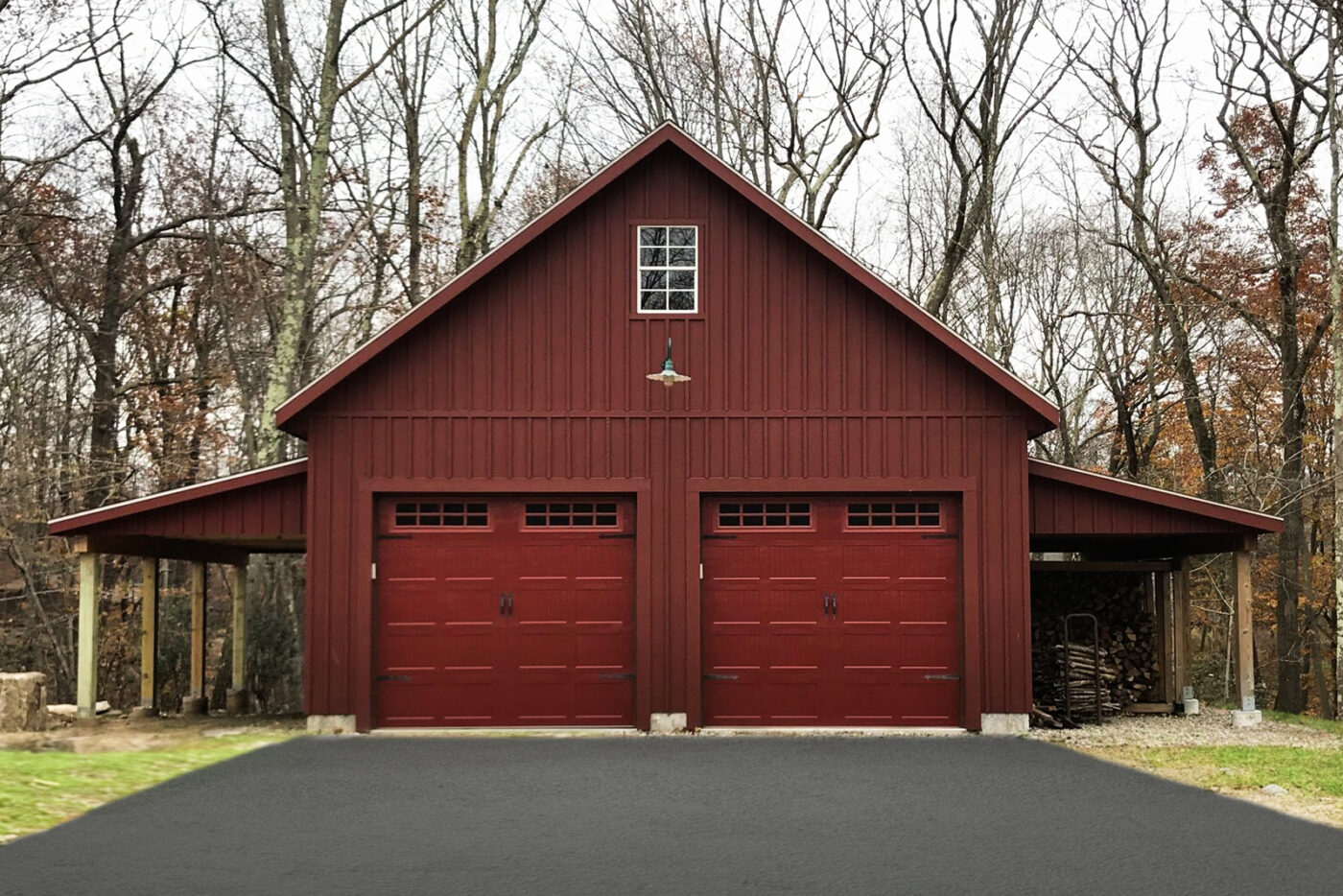
Garage permit durations vary depending on the town or city where you’re building. Since permits are handled at the local level, there’s no one-size-fits-all rule—some are good for a year, others for two, and many allow extensions if needed.
Here’s an overview of permit validity periods in select towns:
Given these variations, it’s essential to consult your local building department for the most accurate and up-to-date information regarding permit durations and renewal procedures.

Failing to secure a required permit can lead to significant penalties. In Berlin, not obtaining a permit may result in a Cease and Desist Order and fines up to $100 per day. Additionally, you might be required to remove non-compliant work. To avoid such consequences, always ensure you have the necessary permits before commencing construction.
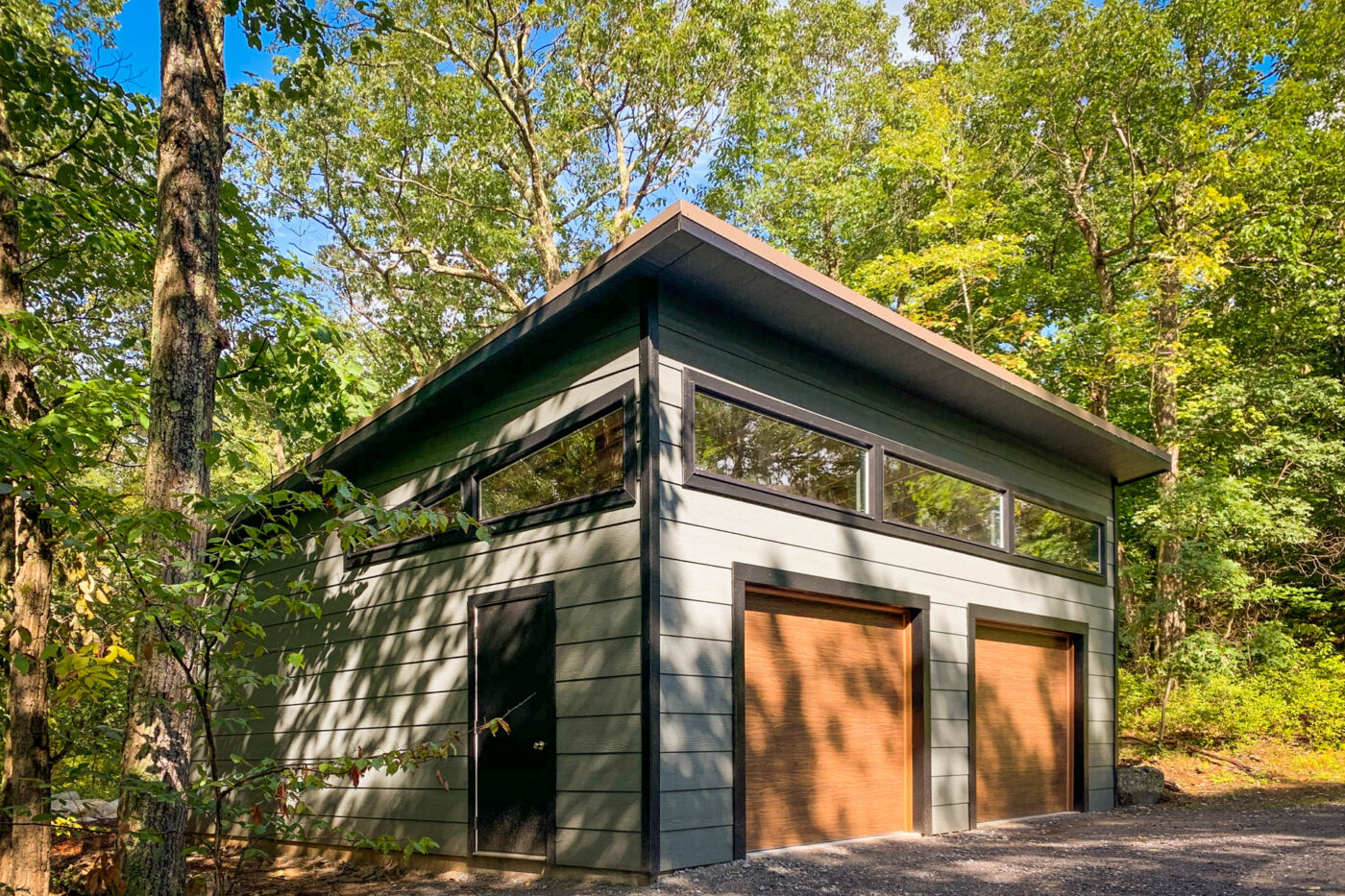
In New Hampshire, most towns require a building permit for constructing a garage. Common requirements include:
Check with your local building department for specific requirements in your area.

When building or installing a garage in New Hampshire, it’s important to follow local regulations and permitting requirements. While smaller structures may not always need a permit, it’s wise to consult your local zoning office to avoid fines. If you’re adding electricity, be sure to secure the appropriate electrical permit and monitor its expiration to stay compliant. Adhering to these guidelines not only keeps you in compliance but also ensures the safety and stability of your property.
Always consult with your local town or city hall to confirm the specific permit requirements and fees applicable to your construction project.
Don’t forget, if you’re ready to explore your garage options, our 3D Garage Builder and model pages are always here to help!
Create the building of your dreams by customizing a design in 3D. You can also call us at 717-442-3281. We're here to assist you!